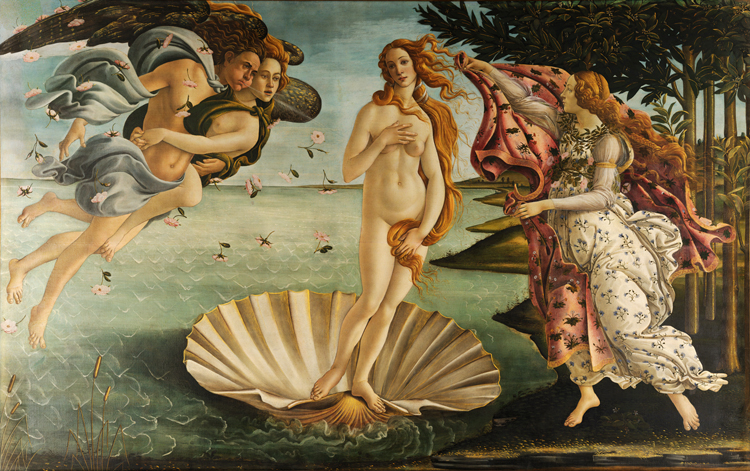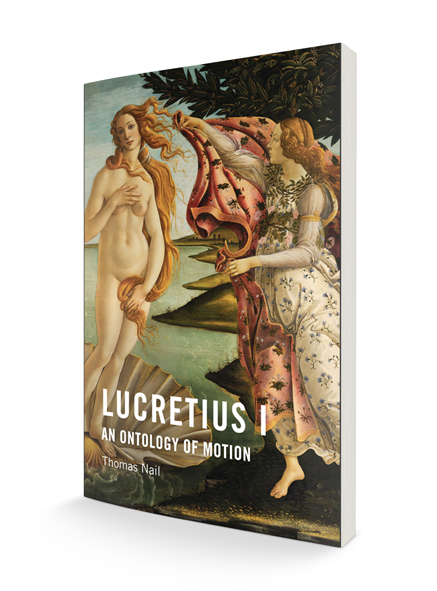

Aeneadum genetrix, hominum divomque voluptas,
alma Venus
Mother of the descendants of Aeneas, desire of humans and gods
life-giving Venus
– Lucretius, De Rerum Natura
Venus as Voluptas
Venus is the desire of gods and men (hominum divomque voluptas). The double genitive here is critical. Venus is not only the external object of desire of the other gods and of men, but she is the desire itself. She is therefore both the process and the object of desire. She is the object of pleasure [voluptas] and the subject of desire [voluptas] at the same time. In other words, Venus is the immanent process of desire/pleasure which desires itself. Gods and men are therefore unified by the voluptas that moves through them equally, as expressed in this beautiful Homeric Hymn to Aphrodite:

Muse, sing to me the deeds [ergon] of golden Aphrodite
of Cyprus, who roused sweet longing in the gods
and overwhelmed the tribes of mortal men
and the birds of the air and all the beasts …
for the deeds of fair-wreathed Kytherea are a care to all.
The transcendence of the gods and the immanence of men is instantly toppled by the double genitive of desire which is immanent in both and therefore produces both as immanent expressions of a single process of desire. In this sense, gods and men are themselves already expressions of a more primary process of desire within them. Their will [voluntas] is nothing other than the immanent desire of Venus expressed in and through them.
The subject and object of desire
It is therefore a mistake to think of Venus as a mere object of desire, as if desire were cut off from its object and defined by a lack or negativity. The subject of that desire already presupposes a more primary constitutive flow of desire: the creative power of mother Venus herself. Venus is thus the creative desire that moves through and produces the subject and the object, and the desire/pleasure between them.
The notion that desire is a lack or negativity is only a regional determination from the limited perspective of either a divine or earthly subject. In fact, the desire of Venus is already the ontogenetic precondition for the production of the desiring subject in the first place. The subject and object of desire are therefore co-constituted in the same immanent material flow of desire. Here, Lucretius could not be farther away from the Platonic negativity of desire as a lack. Desire, here, lacks nothing. Desire desires itself in a purely positive feedback or fold.
By Thomas Nail
Thomas Nail is Associate Professor of Philosophy at the University of Denver. Lucretius I is the first in his daring trilogy to rethink De Rerum Natura to give us a historical foundation for a new philosophy of movement.
Image credits:
- Homer by Mattia Preti. Gallerie dell’Accademia [CC BY-SA 4.0], from Wikimedia Commons
- The Birth of Venus by Sandro Botticelli [Public domain], via Wikimedia Commons






“The Beauty comes, and had I tongues of fire, —
So many songs did Beauty e’er inspire, —
Who sees her, of his wits is dispossessed,
And who possessed her was too highly blessed…”